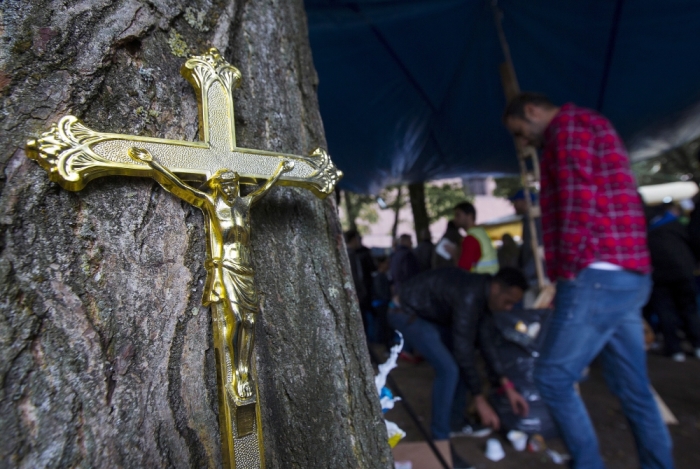Trump Plan to Prioritize Religious Minority Refugees Is American Tradition, Experts Say

The prioritization of religious minority refugees facing genocide is a "tradition" that has been carried out by the United States government on a number of occasions in the last century, leading religious freedom advocates are saying.
As Christian organizations and others continue to voice their opposition to President Donald Trump's Jan. 27 executive order barring refugee resettlement for 120 days, many are speaking out against language in the order that calls for the State Department to prioritize individual asylum claims of religious minorities facing persecution once the order is lifted.
Considering that Trump told CBN News that he does see Christian refugees in Syria as a "priority," critics have claimed that Trump plans to give special status for Christians.
Although nothing in the order's actual language states that Christians will be favored over other persecuted religious minorities, staunch opponents of Trump's order have decried any attempt to prioritize Christians.
An appeals court Thursday upheld a temporary suspension of the executive order and late Friday Trump said the White House is considering rewriting the executive order.
Jenny Yang, the vice president of advocacy for the evangelical refugee resettlement organization World Relief, argues that "thinking [that] Christians are preferred to other religions actually perpetuates the risk they face."
Additionally, Rev. Thomas Reese, a Jesuit who serves on the U.S. Commission on International Religious Freedom, told The Washington Post that "any proposal that preferences Christians over Muslims as refugees makes Catholic leaders nervous because it feeds that narrative that this is a war between the Christian West and the Muslims."
While Trump's order has received widespread criticism from leaders affiliated with various Christian faiths and federal courts continue to weigh whether or not the order's clause on prioritization is constitutional, experts who advocate for international religious freedom concerns have explained that there is nothing new about a U.S. policy taking religious persecution into consideration when aiding and resettling refugees.
Given the fact that the U.S. Government has declared that the Islamic State has committed genocide against Christians, Yazidis and other presecuted religious minorities in Iraq and Syria, Andrew Walther, the vice president of communications and strategic planning for the Catholic fraternal organization Knights of Columbus, believes it would make sense to prioritize persecuted religious minorities victimized by IS.
In fact, he told The Christian Post that, "religious persecution is one of the factors that establishes refugee status under American law, and prioritizing Syrian Christians and other religious minorities was the stated policy of the Obama administration as well, though the prioritization failed to materialize for any of the minority groups in terms of actual numbers of those admitted."
"In previous cases of genocide, the United States government has prioritized religious minorities who were targeted for genocide, who were refugees, who were displaced, who were in need of humanitarian aid, immigration or resettlement assistance," Walther, who has been to Iraq twice in the last year, continued. "What we have is an unbroken history of prioritizing people that have been victims of genocide or targeted for genocide. That is a proud tradition for this country."
Additionally, Samuel Tadros, a senior fellow with the Washington D.C.-based think tank Hudson Institute's Center for Religious Freedom, told nationally syndicated religion columnist Terry Mattingly that "there's nothing new about the United States taking religion into account when it's clear that refugees are part of persecuted minority groups."
"Tragically, religion is part of the refugee crises we see around the world right now and that certainly includes what's happening in Syria and Iraq," Todros asserted.
Walther explained that after both World War I and World War II, persecuted religious minorities, such as Armenians who experienced genocide perpetrated by the Ottomans and Jews who survived the Holocaust, received preference from the U.S. government on the basis of the persecution they endure.
"You have World War II, where you have Jewish Holocaust survivors who were prioritized in terms of the number that were admitted for resettlement compared to the other groups," Walther explained. "There was certainly a much greater percentage resettled from the Jewish community towards the end the war and after than from some of the other communities that had refugees on a percentage basis. It was striking."
In addition to the treatment of Jews and Armenians who faced genocide, Congress passed the Lautenberg Amendment through an appropriations bill in 1990 that loosened refugee status standards for persecuted religious minorities — Christians, Jews and Baha'is — fleeing from the Islamic Republic in Iran.
"Year after year, the Lautenberg Amendment has been extended to provide a lifeline to Jews, Baha'is, Christians and others fleeing persecution in Iran, the former Soviet bloc and parts of Asia," Mattingly wrote.




























